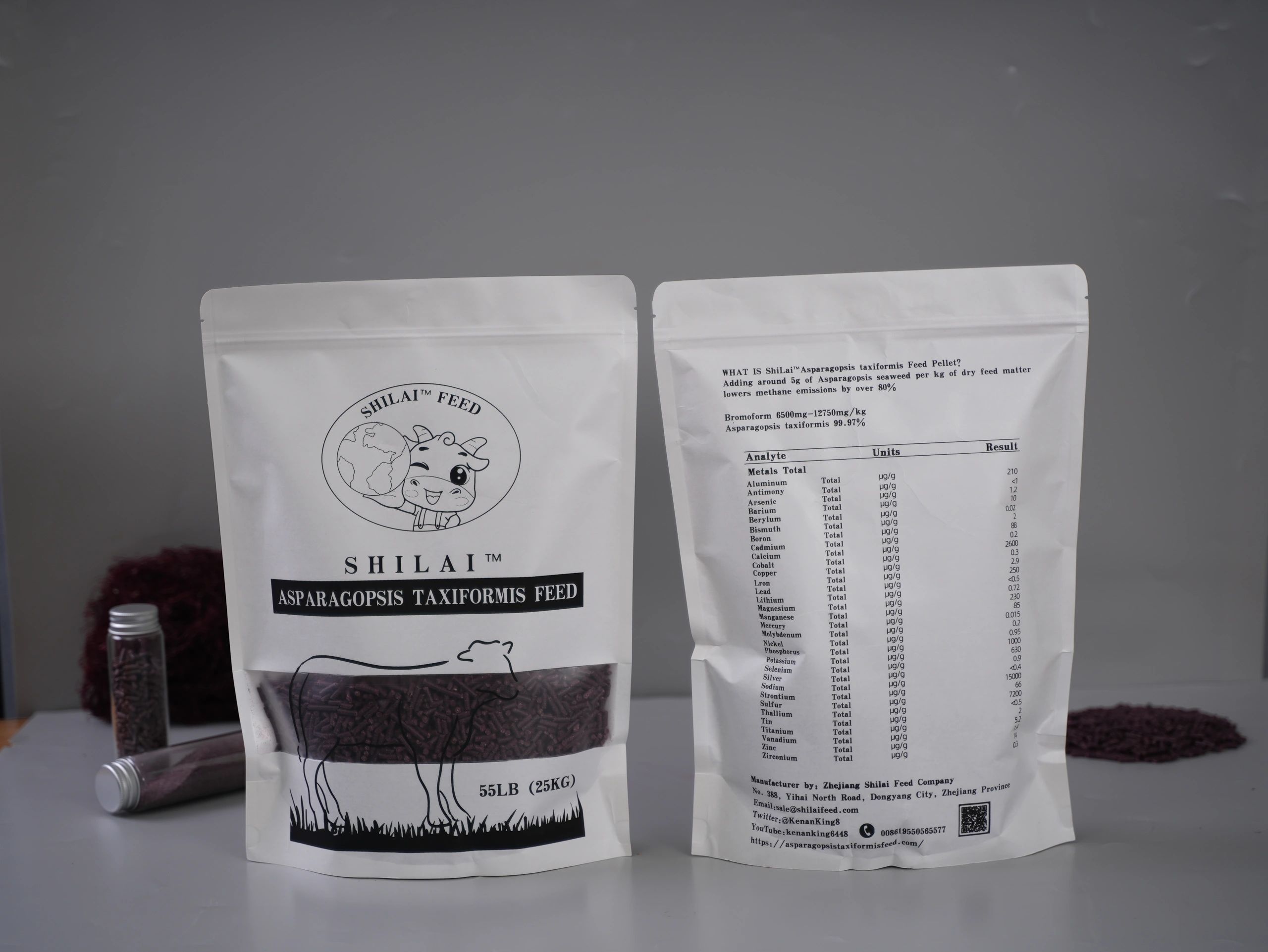Worldwide agriculture accounts for a significant portion of greenhouse gases, with livestock as a chief contributor.
The climate impact of methane surpasses that of carbon dioxide on a per-molecule basis, underscoring the urgency to reduce it.
A red seaweed called Asparagopsis taxiformis has surfaced as a potential game-changing tool to lower methane produced by grazing animals.
The seaweed’s active substance disrupts microbial methane production in the rumen, cutting animals’ methane emissions.
Mixing Asparagopsis taxiformis into diets has returned positive early-stage evidence for cutting methane from ruminant animals.
- Additionally, Asparagopsis taxiformis provides further value propositions alongside emissions reductions.
- Stronger digestive performance in animals
- Prospects for sustainable blue-economy enterprises and added rural income
Continued study and commercial testing are required, however Asparagopsis taxiformis could be a transformative sustainable solution.
Unlocking the Potential of Asparagopsis taxiformis Powder as a Feed Additive
Powdered Asparagopsis taxiformis offers a convenient avenue to integrate its methane-cutting properties into commercial feeds.
The seaweed offers a combination of nutritive and bioactive properties that benefit animal performance.
Formulating with A. taxiformis powder has lowered methane in studies and can provide additional vitamins and minerals to animals.
Expanded experimental work is required to refine inclusion levels, manufacturing approaches, and comprehensive safety data.
The Promise of Asparagopsis taxiformis for Greener Animal Agriculture
The species is increasingly seen as an intervention to lessen the environmental footprint of conventional livestock production.
Adding the seaweed to rations may deliver substantial methane mitigation and reduce farms’ overall climate impacts.
Research findings indicate the seaweed may also enhance productivity and health markers in livestock alongside emission cuts.
Broader and longer studies are essential for confirmation, although early evidence is strongly positive.
Curbing Enteric Methane via Asparagopsis Feed Inclusion
Asparagopsis is recognized as a strong candidate for reducing the methane burden from ruminant livestock.
Its methane-cutting impact is linked to compounds that interfere with the microbial pathways responsible for methane formation.
- Research trials have demonstrated that Asparagopsis can reduce methane by substantial percentages in controlled studies.
- The strategy of adding Asparagopsis to feed aligns with sustainable agricultural practices for emissions reduction.
- Producers and ranchers are beginning to consider piloting Asparagopsis in their feeding regimens.
Asparagopsis: Seaweed Driving New Directions in Animal Agriculture
Ocean-sourced Asparagopsis taxiformis is gaining recognition for its capacity to reduce methane in ruminant digestion.
- Inclusion of the seaweed in animal feeds produced significant methane cuts in research trials with clear climate implications.
- This seaweed breakthrough may foster a new balance between productive farming and reduced ecological impact.
As climate strategies evolve, Asparagopsis emerges as a distinctive, implementable solution for cutting livestock methane.
Maximizing the Methane-Reduction Potential of Asparagopsis taxiformis Feed Products
Researchers are working to optimize processing, dosage, and formulation to maximize the methane-cutting efficacy of A. taxiformis.
The Science Behind Asparagopsis taxiformis's Methane-Lowering Effects

The methane-lowering phenomenon is linked to the seaweed’s interaction with methanogenic archaea in the rumen, reducing their activity.
Bromoform and related halogenated compounds are thought to play a major role in disrupting methane production, with ongoing safety studies.
Incorporating Asparagopsis into Feed Recipes to Advance Sustainable Production
The combination of nutritive content and functional compounds makes Asparagopsis suitable for practical feed inclusion.
Formulating with Asparagopsis can enhance diets via added nutrients, better digestion, and possible reductions in pathogenic microbes.
Asparagopsis taxiformis as a Nature-Based Path to Greener Food Production
Asparagopsis taxiformis offers a natural pathway to mitigate climate impacts associated with livestock and contribute to sustainable food systems.
- Moreover, the species supplies nutrients that can enhance the dietary profile of feed formulations.
- Research teams and industry players are assessing the species for multiple applications within food production chains.
Integrating Asparagopsis taxiformis into existing practices could produce meaningful reductions in the environmental impacts of agricultural activities.
Asparagopsis Feed Strategies to Improve Animal Well-Being and Productivity
The seaweed presents a promising feed additive option with potential co-benefits for emissions and animal performance.
Evidence points to improved digestive nutrient capture and feed efficiency with Asparagopsis, which may raise productivity.
The seaweed’s bioactives may provide antioxidant and immune-support effects that support animal robustness and disease resistance.

Rising interest in low-emission production pathways makes Asparagopsis a timely option as further research and markets develop.
Towards Carbon Neutrality with Asparagopsis-Enhanced Feed Solutions
Agriculture is under increasing demand to cut emissions, and Asparagopsis represents a practical route to reduce methane contributions.
- The scientific consensus points to the seaweed’s compounds as inhibitors of rumen methanogenesis, limiting methane output.
- Experimental work has shown promising methane decreases associated with Asparagopsis supplementation in diets.
As a feed innovation, Asparagopsis could contribute to more climate-resilient and environmentally conscious food systems.